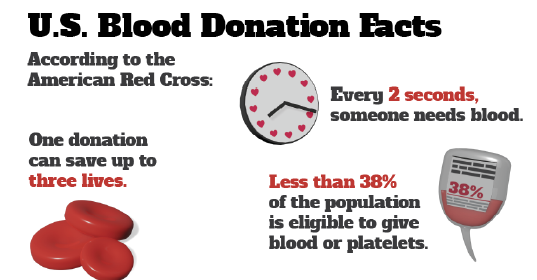Since 1970, National Blood Donor Month has been celebrated in January. Historically, the winter season is one of the most difficult times of the year to collect enough blood products and donations to meet patient needs. While “whole blood” donations are the most common, individuals can also make platelet, power red and plasma donations.
Donated blood is used for blood transfusions. Common scenarios in which blood transfusions are needed include the following:
- • Patients suffering from severe trauma following disasters and accidents
- • Patients receiving surgical treatments and some medical treatments, including cancer patients and patients with sickle cell disease
Making the decision to donate blood can help save a life, but not everyone is eligible to donate blood. Visit the American Red Cross’ website to see if you meet the requirements to safely donate blood.

This Superfood May Help Prevent Diabetes
According to a four-year study, consuming legumes (e.g., beans, lentils and peas) may help you prevent diabetes. The study tracked the health of over 3,300 patients who were at-risk of developing Type 2 diabetes, and found that those who consumed the most legumes were 35% less likely to develop diabetes.
The weekly legume serving average varied between 3.35 servings and less than half a serving. The study found that those who ate just one serving per week were 33% less likely to develop Type 2 diabetes than those who consumed less than one serving per week.
In addition to helping prevent Type 2 diabetes, legumes can help protect heart and brain health, promote a healthy weight and reduce the risk of cancer. For more information, contact your doctor.















